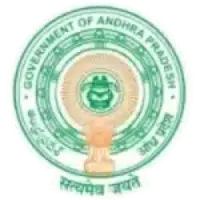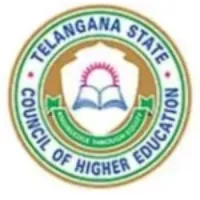Latest Applications Open 2024:
AP PGECET 2024 Instrumentation Engineering Syllabus has been Available now. The AP PGECET Instrumentation Engineering Syllabus is a comprehensive guide that outlines the specific topics and subjects candidates need to study when preparing for the AP PGECET exam in this field. This syllabus is essential for candidates aspiring to pursue postgraduate studies in Instrumentation Engineering in Andhra Pradesh.
The syllabus covers many subjects, including measurement and control systems, sensors and transducers, digital electronics, and process control. It provides a structured approach for candidates to focus their preparation, ensuring they have a solid foundation in the key areas of Instrumentation Engineering.
By adhering to the AP PGECET Instrumentation Engineering Syllabus, candidates can effectively align their study materials and efforts, increasing their chances of performing well in the entrance exam. It is a valuable resource for candidates seeking admission to top-notch institutions offering Instrumentation Engineering programs in Andhra Pradesh. As such, it is recommended that candidates thoroughly review and understand this syllabus to prepare adequately for the AP PGECET exam.
AP PGECET 2024 Instrumentation Engineering Syllabus – Available
AP PGECET 2024 Instrumentation Engineering Syllabus has been Available now. Click to Download Syllabus PDF.
Engineering Mathematics
Engineering Mathematics is a fundamental and essential component of engineering studies. It provides the mathematical principles and techniques necessary for solving complex engineering problems. This subject covers various mathematical concepts such as calculus, linear algebra, differential equations, probability, and statistics, which are applied to various engineering disciplines. Engineering Mathematics bridges theoretical mathematics and real-world engineering applications, enabling engineers to model, analyze, and solve engineering challenges effectively. It plays a crucial role in designing innovative solutions, optimizing processes, and ensuring the functionality and safety of engineering systems.
Linear Algebra
Matrix Algebra, Systems of linear equations, Eigenvalues and Eigen vectors.
Latest Applications For Various UG & PG Courses Open 2024
-
- Parul University | Admissions Open for All Courses 2024. Apply Now
- Chandigarh University | Admissions Open for All Courses 2024. Apply Now
- NIIT | Admissions Open for All Courses 2024. Apply Now
- KL University | Admissions Open for All Courses 2024. Apply Now
- Alliance UG | Admissions Open for All Courses 2024. Apply Now
- GD Goenka | Admissions Open for All Courses 2024. Apply Now
Calculus
Mean value theorems, Theorems of integral calculus, Evaluation of definite and improper integrals, Partial Derivatives, Maxima and minima, Multiple integrals, Fourier series. Vector identities, Directional derivatives, Line, Surface and Volume integrals, Stokes, Gauss, and Green’s theorems.
Differential Equations
First-order equations (linear and nonlinear), Higher-order linear differential equations with constant coefficients, Method of variation of parameters, Cauchy’s and Euler’s equations, Initial and boundary value problems, Partial Differential Equations and variable separable methods.
Complex Variables
Analytic functions, Cauchy’s integral theorem and integral formula, Taylor’s and Laurent’ series, Residue theorem, solution integrals.
Probability and Statistics
Probability, Sampling theorems, Conditional probability, Probability Density Function, Mean, median, mode and standard deviation, Random variables, Discrete and continuous distributions, Exponential, Poisson, Normal and Binomial distribution, Correlation and regression analysis.
Numerical Methods: Solutions of nonlinear algebraic equations, single and multi-step methods for differential equations.
Instrumentation Engineering
Instrumentation Engineering is a specialized field crucial in various industries, including manufacturing, automation, and process control. This discipline focuses on designing, developing, and maintaining instruments and control systems to ensure the precise measurement and control of various parameters such as temperature, pressure, flow, and more. Instrumentation engineers are essential in energy, pharmaceuticals, aerospace, and petrochemicals, contributing to improved efficiency, safety, and quality. Their expertise is vital in shaping modern industrial processes and technologies, making Instrumentation Engineering an exciting and impactful field of study and practice.
Basics of Circuits and Measurement Systems
Kirchoff’s laws, mesh and nodal Analysis. Circuit theorems. One-port and two-port Network Functions. Static and dynamic characteristics of Measurement Systems. Error and uncertainty analysis. Statistical analysis of data and curve fitting.
Transducers, Mechanical Measurement and Industrial Instrumentation
Resistive, Capacitive, Inductive, and piezoelectric transducers and their signal conditioning. Measure displacement, velocity, and acceleration (translational and rotational), force, torque, vibration, and shock. Measurement of pressure, flow, temperature, and liquid level. Measurement of pH, conductivity, viscosity, and humidity.
Analog Electronics
Characteristics of diode, BJT, JFET, and MOSFET. Diode circuits. Transistors at low and high frequencies, Amplifiers, single and multi-stage. Feedback amplifiers. Operational amplifiers, characteristics, and circuit configurations. Instrumentation amplifier. Precision rectifier. V-to-I and I-to-V converter. Op-Amp-based active filters. Oscillators and signal generators.
Digital Electronics
Combinational logic circuits, minimization of Boolean functions. IC families, TTL, MOS, and CMOS. Arithmetic circuits. Comparators, Schmitt triggers, timers, and mono-stable multi-vibrator. Sequential circuits, flip-flops, counters, shift registers. Multiplexer, S/H circuit. Analog-to-digital and Digital-to-Analog converters. Basics of number systems. Microprocessor applications, memory, and input-output interfacing, Microcontrollers.
Signals, Systems, and Communications
Periodic and aperiodic signals. Impulse response, transfer function, and frequency response of first and second order systems. Fourier transforms, Laplace transform, Z-transform, Convolution, correlation, and characteristics of linear time-invariant systems. The discrete-time system, impulse, and frequency response. Pulse transfer function. IIR and FIR filters. Amplitude and frequency modulation and demodulation. Sampling theorem, pulse code modulation. Frequency and time division multiplexing. Amplitude shift, frequency shift, and pulse shift keying for digital modulation.
Electrical and Electronic Measurements
Bridges and potentiometers, measurement of R, L, and C. Measurements of voltage, current, power, power factor, and energy. A.C & D.C current probes. Extension of instrument ranges. Q-meter and waveform analyzer. Digital voltmeter and multimeter. Time, phase, and frequency measurements. Cathode ray oscilloscope. Serial and parallel communication. Shielding and grounding.
Latest Applications For Various UG & PG Courses Open 2024
-
- Parul University | Admissions Open for All Courses 2024. Apply Now
- Chandigarh University | Admissions Open for All Courses 2024. Apply Now
- NIIT | Admissions Open for All Courses 2024. Apply Now
- KL University | Admissions Open for All Courses 2024. Apply Now
- Alliance UG | Admissions Open for All Courses 2024. Apply Now
- GD Goenka | Admissions Open for All Courses 2024. Apply Now
Control Systems and Process Control
Feedback principles. Signal flow graphs. Transient Response, steady-state errors. Routh and Nyquist criteria. Bode plot, root loci. Time delay systems. Phase and gain margin. State space representation of systems. Mechanical, hydraulic, and pneumatic system components. Synchro pair, servo, and step motors. On-off, cascade, P, PI, PID, feed forward and derivative controller, Fuzzy controllers.
Analytical, Optical, and Biomedical Instrumentation
Mass spectrometry, UV, visible, and IR spectrometry. X-ray and nuclear radiation measurements. Optical sources and detectors, LED, laser, Photo-diode, photo-resistor, and their characteristics. Interferometers, applications in metrology. Basics of fiber optics. Biomedical instruments, EEG, ECG, and EMG. Clinical measurements. Ultrasonic transducers and Ultrasonography. Principles of Computer Assisted Tomography.

As a dedicated Biology Science graduate, I’m passionate about sharing the latest updates in national and state entrance exams through my blog. I aim to keep aspiring students informed about exam trends, important dates, and changes in syllabi. With a keen interest in education, I strive to offer valuable insights for students navigating the competitive landscape of entrance examinations and admission tests. Stay updated with me.

